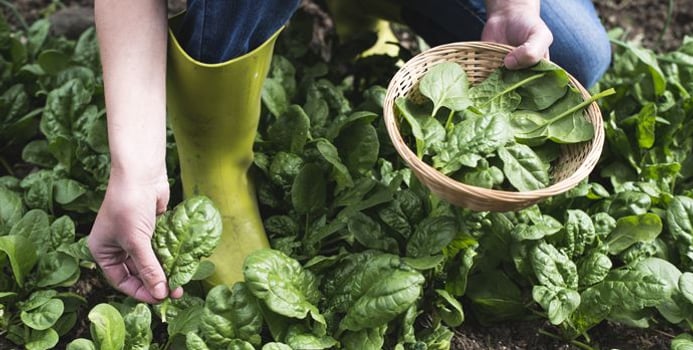Organic foods are easily found in grocery stores both in fresh foods and packaged foods. Organic foods are foods that are or are produced from foods that were grown using beneficial insects, natural pest control methods and coming from farms that work to ensure there is healthy soil replenishment happening. They are produced without antibiotics, hormones, genetic engineering, irradiation or synthetic fertilizers. Organic foods are also required to be grown in soil that has been free of synthetic fertilizers and pesticides for more than 3 years. They are also often lower in nitrates.
You can read labels to find out if the food you are buying is organic or not. If you want to purchase organically grown foods, you want to look for food labels that read “100% organic.” With the exception of salt and water, this means that the food has been produced with only organic ingredients. If a food has a statement on their label that says “made with organic ingredients” this indicates that at least 70 percent of the food or ingredients are organic.
Organic meat is always preferable when possible to ensure that the animal was raised to the highest standards. Growth hormones and use of antibiotics are not allowed to be used with animals that produce organic food. Animals that become our food must be only fed with organic feed, have access to the outdoors and raised in humane conditions.
However, organic food is often more expensive than non-organic foods. Most consumers have to weigh the cost difference and which foods are more likely to be higher in contaminants. Here is a list of foods that are best to purchase organic:
Vegetables
- Celery
- Potatoes
- Sweet Bell Peppers
- Leafy Vegetables like Spinach, Lettuce
Fruits
- Apples
- Cherries
- Strawberries
- Peaches
- Pears
- Nectarines
- Grapes
If organic is out of the budget, these foods tend to be lower in pesticides:
Vegetables
- Cabbage
- Asparagus
- Eggplant
- Sweet Corn
- Onions
- Broccoli
Fruits
- Papayas
- Mangoes
- Kiwi
- Pineapple
- Bananas
- Avocados
Tips to reduce exposure to pesticides and contaminants on food:
- Reduce pesticides and contaminants by washing and scrubbing all produce.
- Pull off the outer leaves of your leafy vegetables, like lettuce.
- Remove the peel from your fruits and vegetables.
- Remove as much fat and skin from your meats and poultry because pesticide residues can be found in higher concentrations in this part of the meat.
[Image via Shutterstock]



